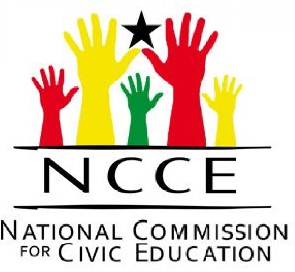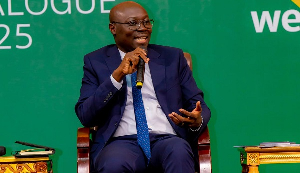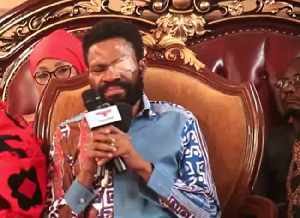The National Commission for Civic Education (NCCE) on Thursday organised a social auditing programme at Chorkor to address the sanitation issues confronting the community.
The forum brought together opinion and traditional leaders, representatives from the Accra Metropolitan Assembly (A.M.A) and members of the community.
A nine-member committee was sworn-in to discuss strategies to solve issues concerning the community.
Ms Druscilla Lartey, the NCCE Officer-in-Charge of the Ablekuma South Metro, in an address said in consultation with the traditional and opinion leaders, the community identified sanitation as the major challenge.
She said lack of refuse containers and open defecation at the beach due to inadequate toilet facilities were also highlighted as challenges.
Ms Lartey reiterated the need for a change in the COVID-19 advocacy language to reinvigorate the sense of urgency.
He said, “the pandemic is deadly therefore we must all work together to stop the spread.
“The easing of restrictions does not mean it is all over. No rather the state has imposed an obligation on every citizen, a sense of responsibility to serve as the first line of front workers to stop the spread.
“Stop COVID-19 at your doorstep, and let me also stop it at my doorstep, we will together defeat the pandemic,” Ms Lartey stated during the engagement at Chorkor.
“It is unacceptable for people to refuse to practice social distancing and also refused to wear the mask. These are anti-social activities and behaviour, which works against our collective aim to deal with the pandemic”.
Ms Lartey said good environmental practices were critical to the fight against the spread of COVID-19 and called on residents to observe personal hygiene and adhere to the safety protocols as outlined by the World Health Organisation and the Ghana Health Service.
Mr Alfred Oko Vanderpuije, Member of Parliament for Ablekuma South Constituency, said sanitation was a major challenge in the community.
He said the AMA had the primary responsibility to lead the way to curb the menace.
He said stakeholders, including the community members should develop a roadmap to deal with the situation.
“The AMA should not sit down and say there is no fund but get together with community members and tackle the issue or it will overwhelm us all.”
Mr Vanderpuije called on businesses and NGO’S to consider it as part of their social community responsibility to contribute resources to help deal with the challenge.
He suggested that property rates should go directly to the AMA, and advised community members to pay up to enable the Assembly to use part of the revenue to fund sanitation projects.
Mr Julius Armah, Acting Sub-Metro Director, said the sanitation challenge in the community was complex and that it called for a collective responsibility to tackle it.
He said community members do not allow refuse containers to be placed near their houses for fear that the place would be littered.
Nii Abiala Wolaatse for Chorkor Mantsuru appealed to the government to come to their aid and to provide proper demarcation of houses in the community to enable refuse trucks enter the beaches and the community.
Nii Abiala said it was embarrassing to the community to be mentioned whenever there were talks on the television and other media platforms on sanitation.
Mr Ivan Esinam Tekpli, Sub-Metro Chairman of the AMA, said revenue to deal with the sanitation challenge was insufficient.
Mr Stephen Okuley, a member of the community, said there should be stiffer punishment for recalcitrant offenders of sanitation laws to serve as a deterrent to others.
Dignitaries included Nii Adotey Berima Shitse II, Chorkor Mantse; Nii Abiala Wolaatse or Chorkor Mnatsuru; and Madam Mercy Essien, NCCE Deputy Regional Director.
General News of Friday, 28 August 2020
Source: GNA













